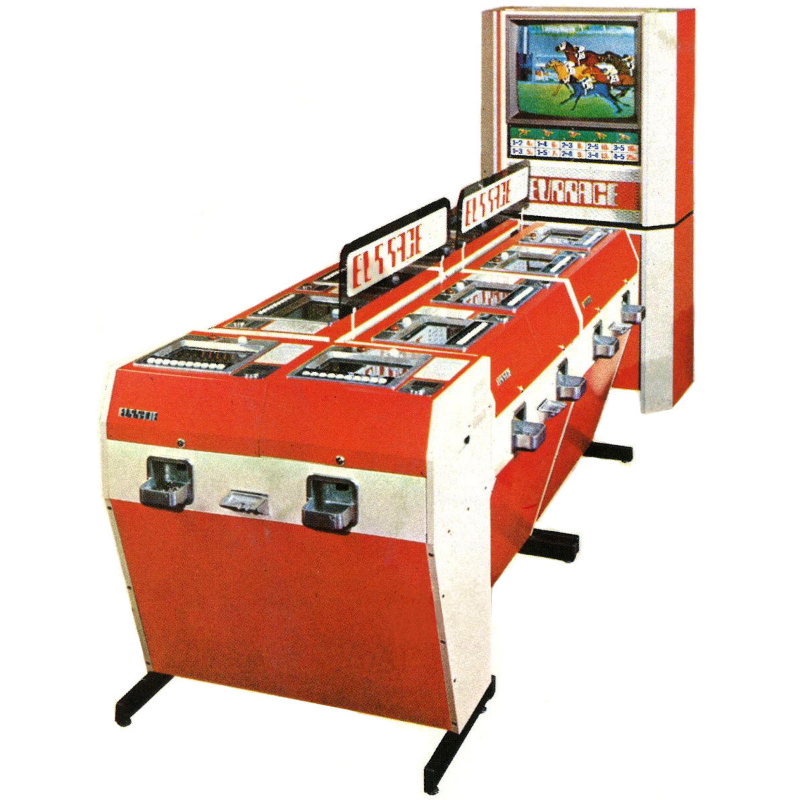Nintendo Arcade Games
In 1973, Nintendo entered the leisure and amusement arcade market as a natural offshoot of its successful playing card and toy businesses. Their first venture upscaled the light gun technology they used in their successful Kousenjuu SP toy range. Nintendo found some success in this market through the 1970s, eventually joining the microprocessor-based arcade game market in 1978.
In 1981, Nintendo landed their first international smash hit with Donkey Kong. They would go on to produce some of the biggest arcade hits of the early 1980s.
Electro-Mechanical Games
Games that combine electronics with physically moving components. Nintendo found early success in the leisure and amusements sector in the early 1970s with their light gun and projection technology.
Where these machines cannot be preserved digitally, many of them are now considered lost media.
Microprocessor Games
The idea to use computer chips to create interactive games had been successful in the U.S. for a few years. But the runaway success of Taito's Space Invaders in 1978 led to a Japanese arcade boom. Nintendo jumped on board, but it wasn't until 1981's smash hit Donkey Kong that Nintendo found real success.
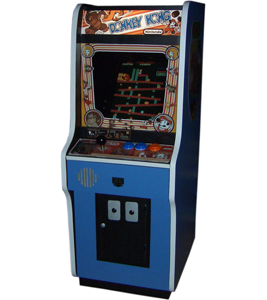
-

Computer Othello
Nintendo Arcade, 1978
-

Block Fever
Nintendo Arcade, 1978
-

Space Fever & Color Space Fever
Nintendo Arcade, 1979
-

Monkey Magic
Nintendo Arcade, 1979
-

SF-HiSplitter
Nintendo Arcade, 1979
-

Sheriff
Nintendo Arcade, 1979
-

Space Launcher
Nintendo Arcade, 1979
-

Head On-N
Nintendo Arcade, 1979
-

Bomb Bee-N
Nintendo Arcade, 1979
-

Space Firebird
Nintendo Arcade, 1980
-

HeliFire
Nintendo Arcade, 1980
-

Radar Scope
Nintendo Arcade, 1980
-

Space Demon
Nintendo Arcade, 1980
-

Sky Skipper
Nintendo Arcade, 1981
-

Donkey Kong
Nintendo Arcade, 1981
-

Donkey Kong Junior
Nintendo Arcade, 1982
-

Popeye
Nintendo Arcade, 1982
-

Mario Bros.
Nintendo Arcade, 1983
-

Donkey Kong 3
Nintendo Arcade, 1983
-

Punch-Out!! & Super Punch-Out!!
Nintendo Arcade, 1984
-

Arm Wrestling
Nintendo Arcade, 1985
-

R-Type
Nintendo Arcade, October 1987 (U.S.A.)
Nintendo VS. System
The next generation of Nintendo arcade games were based on the architecture of the Famicom/NES. Many of the VS. games feature differences to their home counterparts.
Also see the Game & Watch Micro VS. Series.
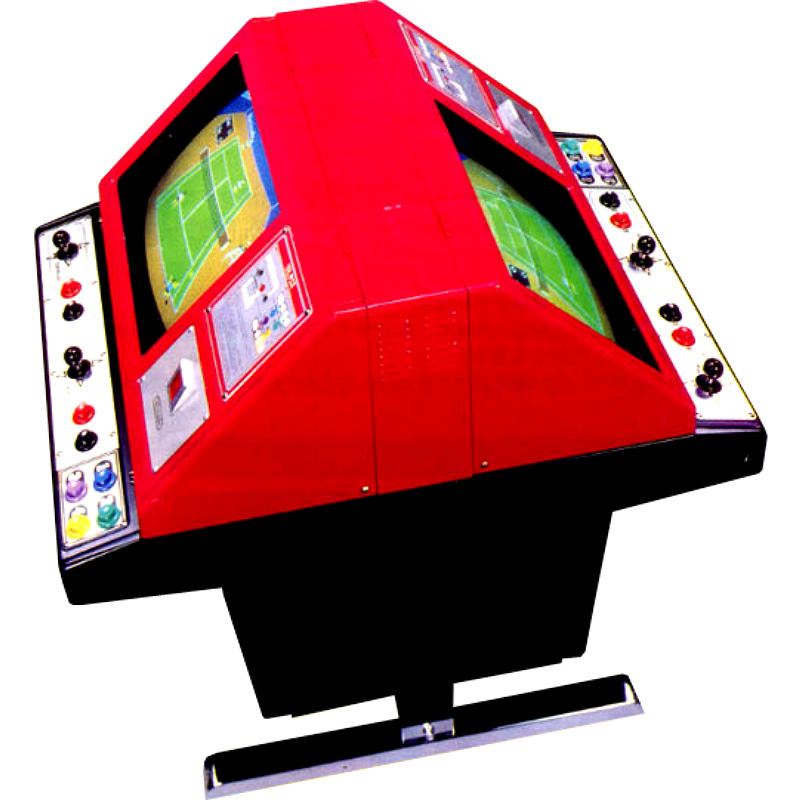
-

VS. Mahjong
Nintendo Arcade, February 1984
-

VS. Tennis
Nintendo Arcade, February 1984
-

VS. Duck Hunt
Nintendo Arcade, April 1984
-

VS. Baseball
Nintendo Arcade, May 1984
-

VS. Stroke & Match Golf
Nintendo Arcade, August 1984
-

VS. Wrecking Crew
Nintendo Arcade, August 1984
-

VS. Balloon Fight
Nintendo Arcade, September 1984
-

VS. Ice Climber
Nintendo Arcade, October 1984
-

VS. Pinball
Nintendo Arcade, October 1984
-

VS. Clu Clu Land
Nintendo Arcade, December 1984
-

VS. Excitebike
Nintendo Arcade, December 1984
-

VS. Urban Champion
Nintendo Arcade, December 1984
-

VS. Wild Gunman
Nintendo Arcade, 1984
-

VS. Hogan's Alley
Nintendo Arcade, April 1985
-

VS. Raid on Bungeling Bay
Nintendo Arcade VS. System, 1985 (Japan)
-

VS. Mach Rider
Nintendo Arcade, August 1985
-

VS. Soccer
Nintendo Arcade, November 1985
-

VS. Super Mario Bros.
Nintendo Arcade, February 1986
-

VS. Gumshoe
Nintendo Arcade, May 1986
-

VS. Volleyball
Nintendo Arcade, December 1986
-

VS. Dr. Mario
Nintendo Arcade, 1990
Famicom and Super Famicom
When Nintendo moved to console development, they would still produce arcade machines to help promote their home games.
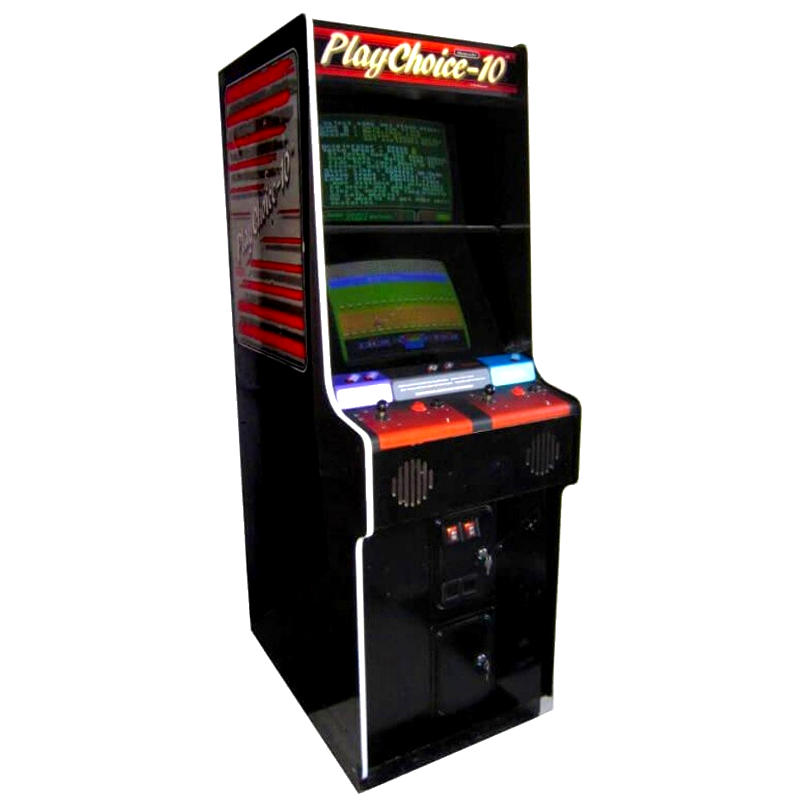
-

Famicom Box
Nintendo Arcade, 1986
-

Playchoice-10
Nintendo Arcade, 1986–1992
-

Nintendo Super System
Nintendo Arcade, 1991–1992
-

Super Famicom Box
Nintendo Arcade, 1994
Ultra 64
As Nintendo prepared to move into 3D games, they partnered with Western studios to develop games for their Ultra 64 arcade boards. In reality, the arcade hardware bore little resemblance to the final Nintendo 64 home console.
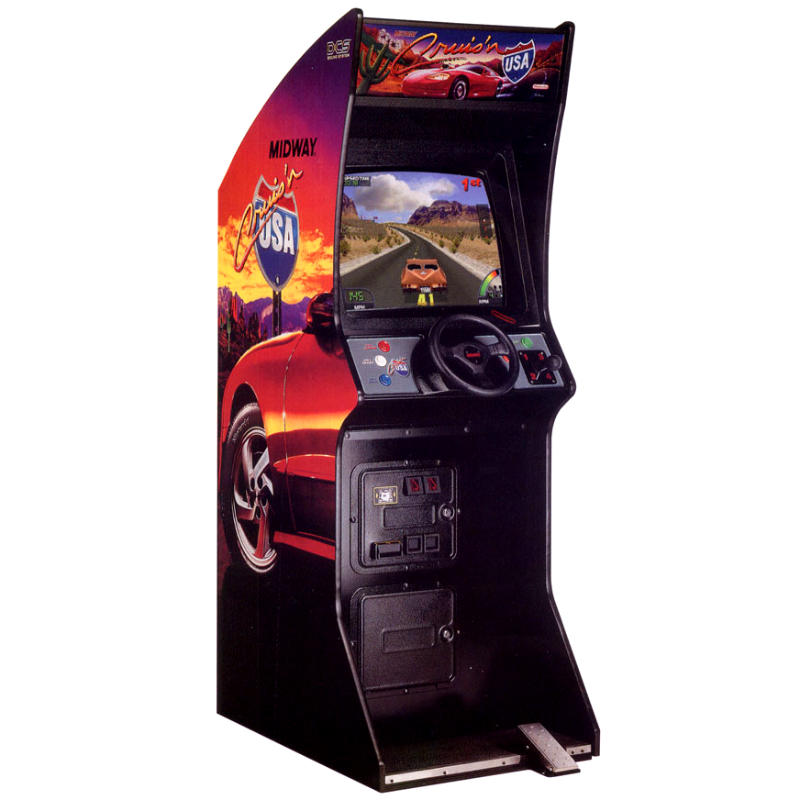
-

Cruis'n USA
Nintendo Arcade, 1994
-

Killer Instinct
Nintendo Arcade, 1994
-

Cruis'n World
Nintendo Arcade, 1996
-

Killer Instinct 2
Nintendo Arcade, 1996
-

Cruis'n Exotica
Nintendo Arcade, 1999
Post-2000
In 2003, Nintendo partnered with Sega and Namco to produce the Triforce arcade board, based on Nintendo Gamecube hardware. However, Nintendo licensed their games to other manufacturers and have not continued to produce arcade games themselves.
This era of arcade games requires more research.
Namco
- Mario Kart Arcade GP (2005)
- Mario Kart Arcade GP2 (2006)
- Mario Kart Arcade GP DX (2013)
- Mario Kart Arcade GP VR (2017)
Sega
- F-Zero AX (2003)
- Rhythm Tengoku (2007)
- Mario & Sonic at the 2016 Rio Olympic Games Arcade Edition (2016)
- Mario & Sonic at the 2020 Tokyo Olympic Games Arcade Edition (2020)
Capcom
- Super Mario Fushigi no Janjan Land (2003)
- Super Mario Fushigi no Korokoro Party (2004)
- Donkey Kong: Jungle Fever (2005)
- Super Mario Fushigi no Korokoro Party 2 (2005)
- Donkey Kong: Banana Kingdom (2006)
- Luigi's Mansion Arcade (2015)
Raw Thrills
- Cruis'n Blast (2017)
